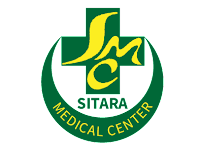Anesthesia

Anesthesia
Our anesthesia services at Sitara Medical Centre are intended to guarantee that our patients have safe and comfortable operations. Our team of highly qualified anesthesiologists and medical specialists is committed to offering top-notch service. Our anaesthesia services are absolutely free since we think everyone should have access to healthcare. Our team puts the safety and comfort of the patient first, whether it’s during a pre-anesthetic consultation, during the treatment, or after. To guarantee the best results, we use cutting-edge methods and monitoring tools. At Sitara Medical Centre, we are dedicated to offering our patients top-notch anesthesia services without placing an undue financial strain on them.
FAQs - Anesthesia
Anesthesia is the medical practice of administering medications to induce a loss of sensation and consciousness during surgical or medical procedures. Its primary purpose is to ensure patient comfort by blocking pain signals and allowing medical interventions to be performed safely and effectively.
There are three main types of anesthesia:
- General Anesthesia: It renders the patient unconscious and without pain sensation. It is commonly used for major surgeries or procedures where the patient needs to be completely unaware and immobile.
- Regional Anesthesia: It numbs specific regions of the body, such as epidurals or nerve blocks. Patients may remain awake or be given sedation, and it is often used for procedures involving larger areas or specific body parts.
- Local Anesthesia: It is used to numb a small area or site of the procedure, such as a skin biopsy or dental work. Patients remain awake, and it is typically used for minor procedures.
While anesthesia is generally safe, it is not without risks. Anesthesiologists carefully assess patients, consider their medical history, and take precautions to minimize risks. Common side effects may include nausea, vomiting, sore throat, drowsiness, and confusion. Serious complications are rare but can include allergic reactions, medication reactions, respiratory problems, or cardiovascular issues. Anesthesiologists closely monitor patients during procedures to ensure their well-being and promptly address any concerns.


